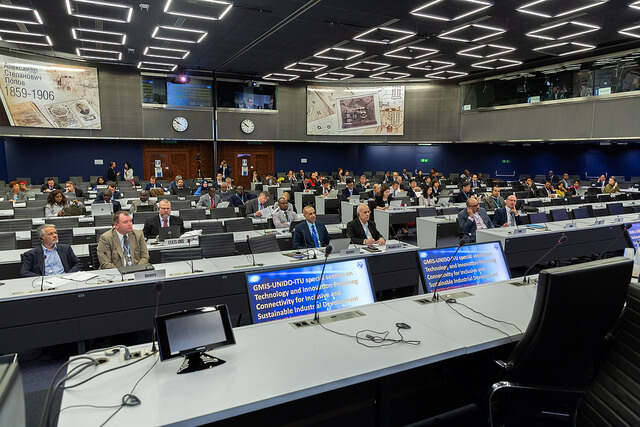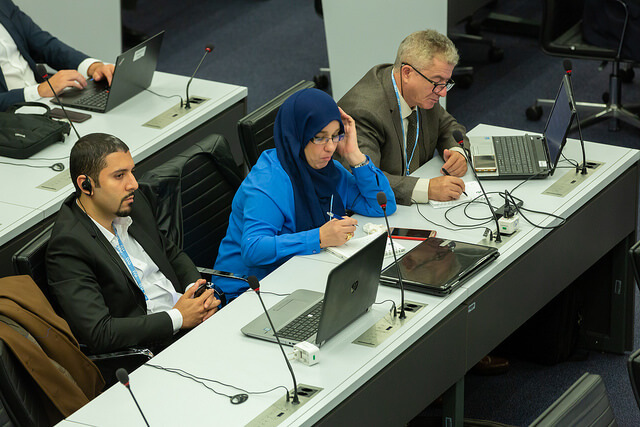ICT industry takes centre stage at ITU event in South Africa.
By Boardroom editors
Digital transformation is changing the way companies do business and transforming lives in developed and developing countries. A recent conference in Durban, South Africa, helped shed light on some of the key issues in the information and communications technologies
(ICT) industry and the ways leaders can excel in this growing sector.
Last month’s ITU Telecom World 2018 conference in Durban, themed “Innovation for Smarter Digital Development,” served as a platform for heads of state, tech SMEs, captains of industry, and digital innovators to open a dialogue on the ICT innovations that can help enhance social and economic development.

ITU-D Study Group 2 Meeting. © ITU/D. Woldu
“Don’t follow the old models. Old models are no longer appropriate. So, think again,” Alan Horne, CEO of Broadband Pioneer, said at the conference.
The clearest example of how technology has affected the meetings industry? Digital tools. Technology has been a game-changer in how conferences are planned and organised. Not only do digital tools allow planners to more efficiently market and manage an event, they also elevate the guest experience through the use of immersive technology such as virtual and augmented reality. AI apps like chatbots and concierge apps can gather data that is processed in real time, helping planners personalise events and engage communities.
Digital tools, however, are only one component of the transformation underway. The African economy exemplifies success in mobile telecommunications.

ITU-D Study Group 2 Meeting. © ITU/D. Woldu
Vodacom Group CEO Shameel Joosub said in a session at the event “that the mobile telecommunications sector represents one of the most significant success stories of the modern African economy over the last 20 to 25 years. Through mobile connectivity, Africa has witnessed significant development.”
Vodacom — along with companies like South Africa-based Telkom and MTN — is helping pave the way for solutions like 5G, driverless cars, e-health measures, and cost-effective rural connectivity, sectors that are crucial to destinations as they embrace digitalization. Developing countries can look to ICT advancements as a way to boost social good, reducing the gap between income inequality.
In 2015 when Budapest was the host city for ITU’s 150th anniversary, Hungary placed a spotlight on some of its own innovators (including Tivadar Puskás, a telephone pioneer from the 1800s who is a well-known name in ICTs today), inspiring the next generation with a programme designed for young professionals and entrepreneurs on the last day of the event.
The ITU event heads back to Budapest next year.

